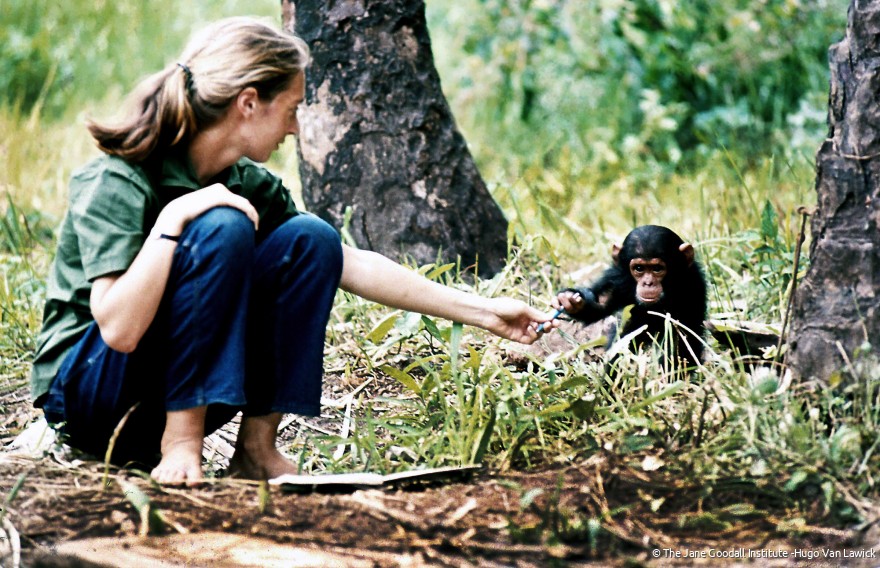Beyond research
Besides the purely zoological and ethological contributions to knowledge, Jane’s insights would also redefine what it means to be human. She links much of her field observations to human behaviour, and has opened up debates on what the roots of it are; how we can stand up to our status as ‘humans’ who have – although much evil is embedded in our DNA as also rudimentary observed in chimps – a tremendous potential for goodness. Much of this is written down in her book Reason for Hope, re-edited after 9/11, a spiritual journey.
Jane has also been involved in zoological research on many species including monkeys, dolphins, vultures, and hyenas, as a co-author of peer reviewed papers and as a board member, honorary member, patron, trustee, etc., of many organizations (e.g., Ocean Elders, led by marine biologist Silvia Earle, advocating the repatriation of all cetaceans in tanks and in zoos to the ocean).
Besides Jane’s tremendous impact on our knowledge on chimpanzee and great ape behaviour, she prefers to call herself a ‘naturalist’ rather than a scientist. Since the 1980s she has been campaigning worldwide, giving public lectures and speaking to leaders to raise awareness on the importance of restoration of nature and protections of animals and biodiversity for the future of all life on the planet.






